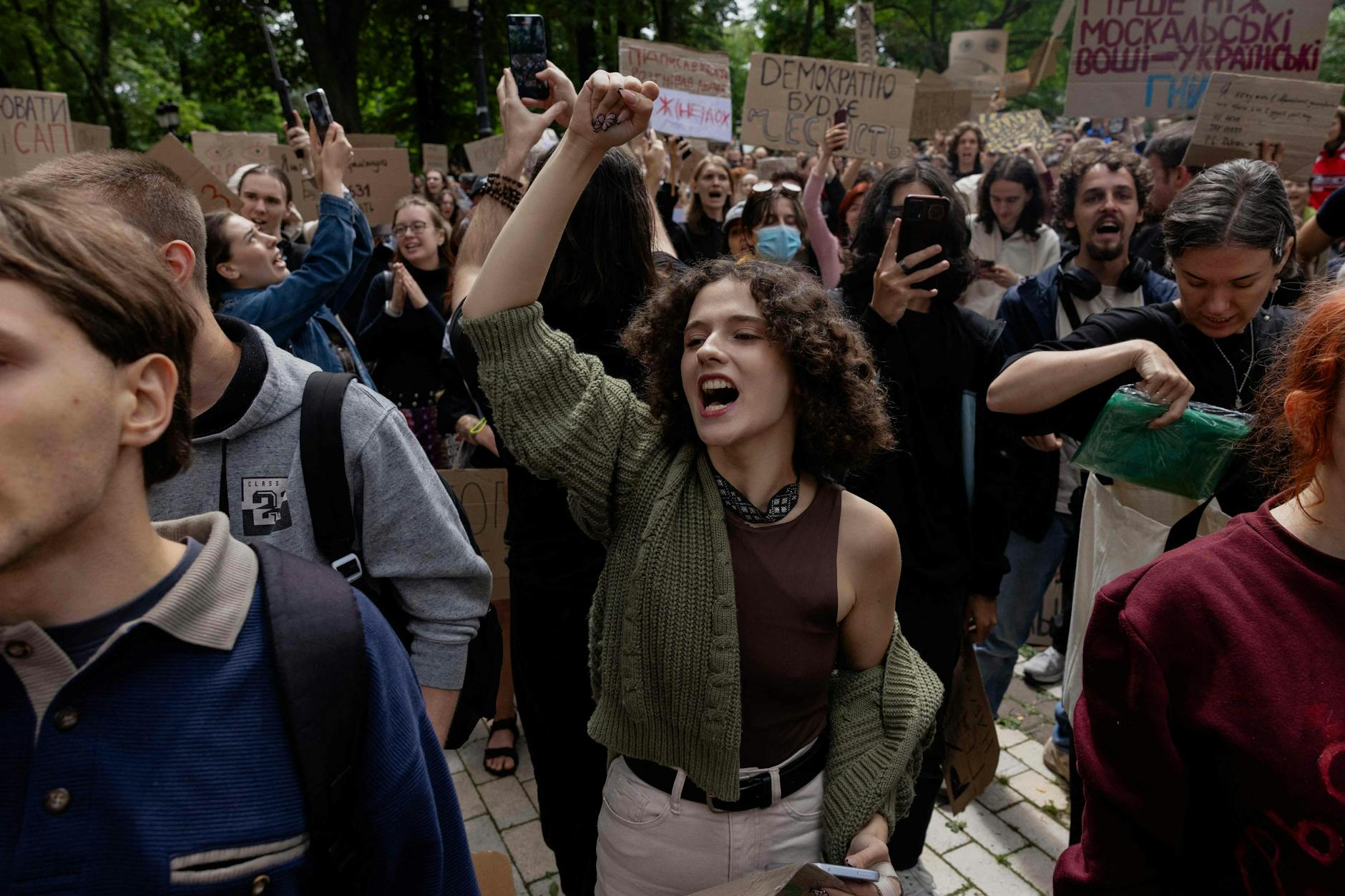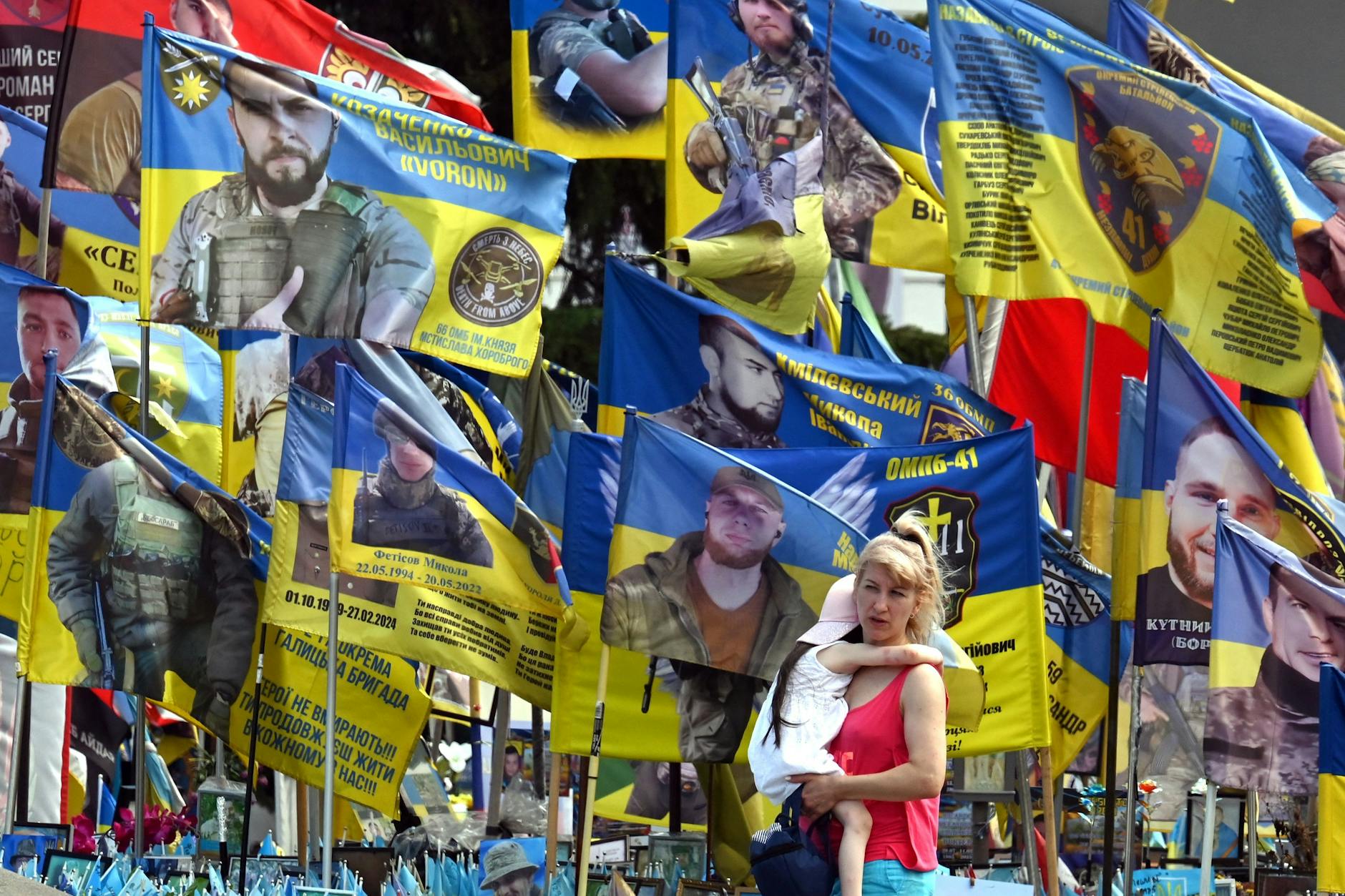Ukrainian opposition politician: “We must not turn Ukraine into an authoritarian regime”

To the outside world, Ukraine appears united, with a president at the helm who holds the country together and has never given up his belief in victory. And never will. This impression is deceptive, says an opposition politician who does not want to be named in an interview with the Berliner Zeitung.
Behind the media scenes, politicians, soldiers, and civil society are grappling with corruption, political tensions, and the question of how the opposition can function in a country where a war has been raging for three years. His party must maintain a balance between supporting national defense and maintaining political control.
On Monday, European heads of state and government traveled to Washington with President Zelenskyy to discuss the results of the Alaska Summit with President Trump and possible ways to end the war in Ukraine. How do you assess Trump's role in the peace efforts so far?
We are deeply grateful to President Trump for his tremendous efforts to end the bloody war in Ukraine and pave the way for peace. His election opened a new window of opportunity to stop the fighting.
What do you think has changed since then?
Compared to the Biden administration, there are clear differences. President Biden focused on helping Ukraine achieve military victory—through sanctions against Russia and supplying weapons. But the diplomatic component often fell by the wayside. President Trump, on the other hand, brought back diplomacy and placed the emphasis on ending the war, but without focusing on strengthening Ukraine. What Ukraine truly needs is not an either/or approach, but a combination of both: robust military and economic support, accompanied by decisive diplomacy to achieve a just and lasting peace.
What exactly do you mean when you say that Ukraine needs to be “strengthened”?
Strength means action. For Ukraine, that primarily means weapons. These include not only modern air defense systems like the Patriot systems, but also offensive weapons and long-range missiles. But strength also means imposing tougher sanctions. Russia's state-owned nuclear company Rosatom must finally be cut off. All Russian banks should be excluded from the SWIFT system. And the Russian assets frozen in Europe, approximately €230 to €240 billion, must be confiscated. Using this money to defend Ukraine would shift the burden from the taxpayer to the aggressor. President Trump says he can bring peace, but seems less interested in the conditions under which it might be achieved. That is why Europe and Ukraine must define those conditions together: a just peace that guarantees our independence, security, and our European future.
Trump has opened a window of opportunity, but it is still up to Europe to set the conditions for peace?
Correct. I'm not against Trump's idea that Europe must assume more responsibility for peace and security. On the contrary, he's right. But Europe must move from words to action. All too often we hear about coalitions, sanctions, or even ground troops, but in the end, it remains just words. Because there's a lack of determination and courage. Supporting Ukraine is not charity, but an investment in Europe's own security. Every euro, every weapon, every sanction strengthens not only Ukraine's defense capabilities, but also Europe's long-term stability and credibility.
Since the Alaska summit, there has been talk of a multinational force in Ukraine as part of security guarantees following a potential ceasefire or peace agreement. In Germany, this has sparked a debate about sending Bundeswehr soldiers. Would you be in favor of allowing German soldiers to fight in Ukraine?
I don't want to make hasty decisions or fuel speculation. The modalities of security guarantees for Ukraine are currently being developed, including the role of foreign troops. What I can say is that Ukraine has already mobilized one million of its own citizens. Our armed forces are strong, disciplined, and motivated. They are our true trump card.
What is Ukraine's long-term security strategy?
There are two levels of security. Externally, five elements are crucial: modern weapons systems, tougher sanctions, the use of frozen Russian assets, investment in the Ukrainian defense sector, and steady progress toward EU and NATO membership. Internally, Ukraine must strengthen the unity of political forces and consolidate democratic institutions. Without this internal strength, our negotiating position remains vulnerable.

You speak of the need for political unity – is there disunity in Ukraine?
At the beginning of the large-scale invasion, Ukraine enjoyed a rare, strong unity. For approximately six to nine months, the government and opposition stood together in a national front. This unity enabled us to repulse Russia from Kyiv and later liberate Kherson and Kharkiv. I well remember President Poroshenko saying to President Zelensky on February 24, 2022, "From this hour, I am no longer your adversary. Our common enemy is Putin." This spirit of national solidarity was crucial to our survival. It sent a clear message to Ukrainians and our partners abroad: Despite political differences, we stand together when the country is at stake. Today, we must restore and strengthen this unity. Without it, our negotiating position is weaker. Putin will try to exploit our divisions. With it, Ukraine will become a stronger partner, a more credible candidate for EU and NATO membership, and a nation capable of achieving peace on just terms.
What happened after those six to nine months?
Ukraine returned to political struggles—investigations against mayors, pressure on the opposition, and restrictions on the media. That was a dangerous mistake. In times of war, internal conflicts weaken us and play into Putin's hands. Only unity and democracy will make Ukraine stronger at the negotiating table.
Does this mean that democracy is at risk in Ukraine during the war?
Unfortunately, yes. Martial law allows military censorship, but not political censorship. However, the opposition today faces restrictions that weaken our democracy and undermine the trust of our international partners. Members of parliament are barred from traveling abroad, even for diplomatic work. The opposition leader was not allowed to leave the country, even when invited by the EU or the White House. Media diversity is shrinking, and opposition figures are subject to extrajudicial sanctions. These measures are not only unconstitutional but also counterproductive. They undermine Ukraine's credibility at the very moment when we must demonstrate democratic resilience to secure EU accession and international security guarantees. The stronger our democracy, the stronger our negotiating position. If we demonstrate internal unity, open politics, and a commitment to democratic values, neither Putin nor skeptics in Europe can question Ukraine's willingness to integrate.
Is corruption still a major problem in Ukraine?
Corruption is one of the biggest concerns for Ukrainians. This hasn't changed since the war began. Some people continue to exploit loopholes and profit from the war. This damages public trust, especially when Ukrainians sacrifice their lives on the front lines. Nevertheless, Ukrainians are the biggest drivers of anti-corruption reforms. Civil society, journalists, and citizens no longer tolerate corruption, and international partners are also pushing for change. The challenge is to embed reforms systemically and protect them from political influence. Corruption is not just a moral issue, but a matter of national security. Every euro stolen from the state budget weakens our defenses. Therefore, the fight against corruption is as important to Ukraine's victory as the provision of weapons.
Who or what do you blame for the rampant corruption?
Due to martial law and the authorities' extensive powers, there is currently little effective oversight or accountability. Anti-corruption institutions and democratic review mechanisms have largely been postponed. Without effective oversight, authorities can operate virtually unchecked.
What can Western partners do to combat corruption?
Western partners have effective tools to combat corruption – but they must use them consistently. The EU, in particular, has powerful leverage through the accession negotiations. Brussels should use these leverages specifically to push forward anti-corruption reforms. Until recently, there was an informal taboo against openly criticizing the Ukrainian authorities. This must change. If something goes wrong, partners should clearly state this. The Ukrainian leadership reacts extremely sensitively to everything related to EU accession, and this is precisely the most effective means of exerting pressure. The West should not only support Ukraine militarily but also push for far-reaching internal reforms. Otherwise, there is a risk that we may win the war but lose the peace.
What do you mean by “losing peace”?
We must not turn Ukraine into an authoritarian regime while fighting the authoritarian Putin. Democracy is crucial for resilience and victory. Our enemy is Putin, not ourselves. Unity, democracy, and accountability are as important as weapons. In the US, China is now often considered the primary adversary, not Russia. Does this mean that Ukraine is losing strategic importance? I disagree. Russia is the most immediate and existential threat to both the United States and Europe. China poses a long-term challenge, yes—but Russia is waging a brutal war against Ukraine today and destabilizing the entire European continent. Viewing Russia as a secondary concern is a dangerous illusion. If Ukraine falls, the European security architecture collapses, NATO's credibility is weakened, US security guarantees are challenged, and authoritarian regimes around the world are emboldened. Supporting Ukraine is therefore not charity. It is a crucial investment in transatlantic security and in the survival of the rules-based order.

Is Ukraine's national identity stronger today than it was before the war began, in February 2022?
Yes, despite all the challenges to our democracy, Ukraine is strong today – thanks to our armed forces, our resilience, and our unshakable identity. Our national foundations – army, language, and faith – have never been stronger. We have learned to live in two worlds at once: nights under rocket fire and days dominated by work, family, and daily routines. This dual reality has fostered extraordinary resilience. Our strength is measured not only by weapons, but above all by the unwavering will of our people to live freely. This is precisely what makes Ukraine not only capable of withstanding Russian aggression, but also worthy of taking its place in the European family.
You mentioned what you believe is necessary for victory. But what does "victory" mean to you?
For me, victory means preserving Ukraine as a sovereign and independent nation, with a clear, irreversible perspective of membership in the EU and NATO. It means preserving our identity—our armed forces, our language, and our faith. These are not abstract values. They are the very foundations of our statehood and resilience. Putin's goal is not limited to Crimea or Donbas. His goal is all of Ukraine—to erase our independence and draw us back into the Russian sphere of influence. That is why our independence is non-negotiable and our country is not for sale. Territories may be liberated sooner or later, but the essence of victory is this: Ukraine must remain independent, sovereign, democratic, and free to choose its own future. That is what victory means to me and to the Ukrainian people.
Berliner-zeitung





